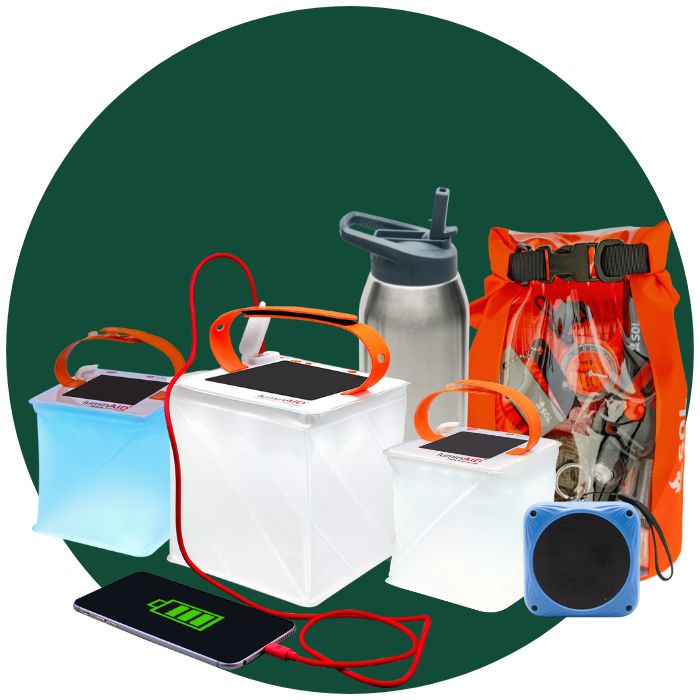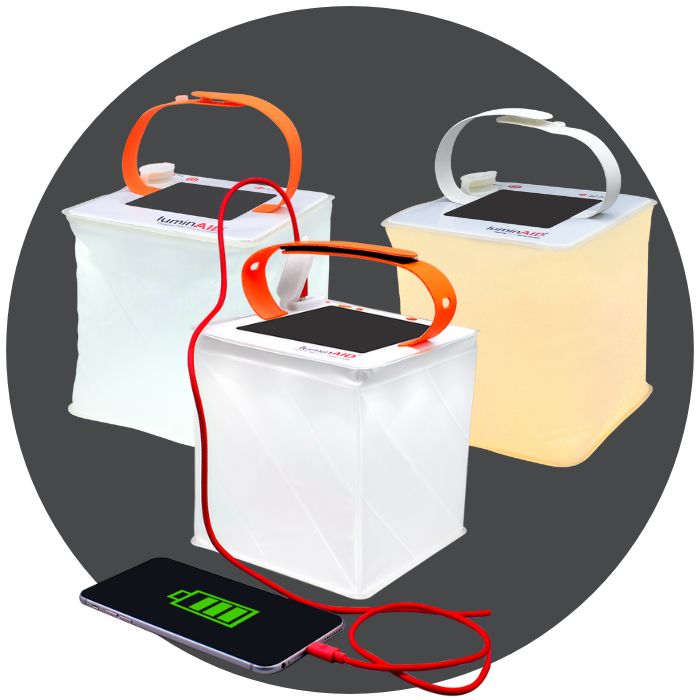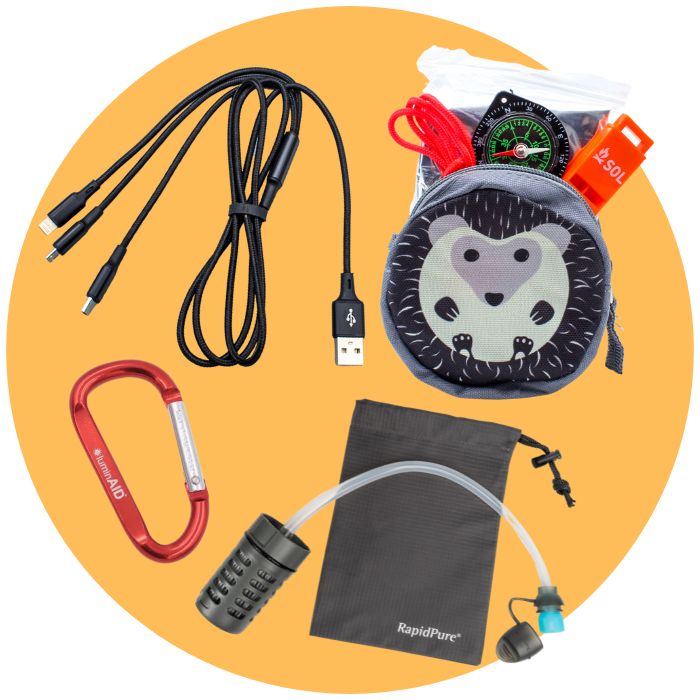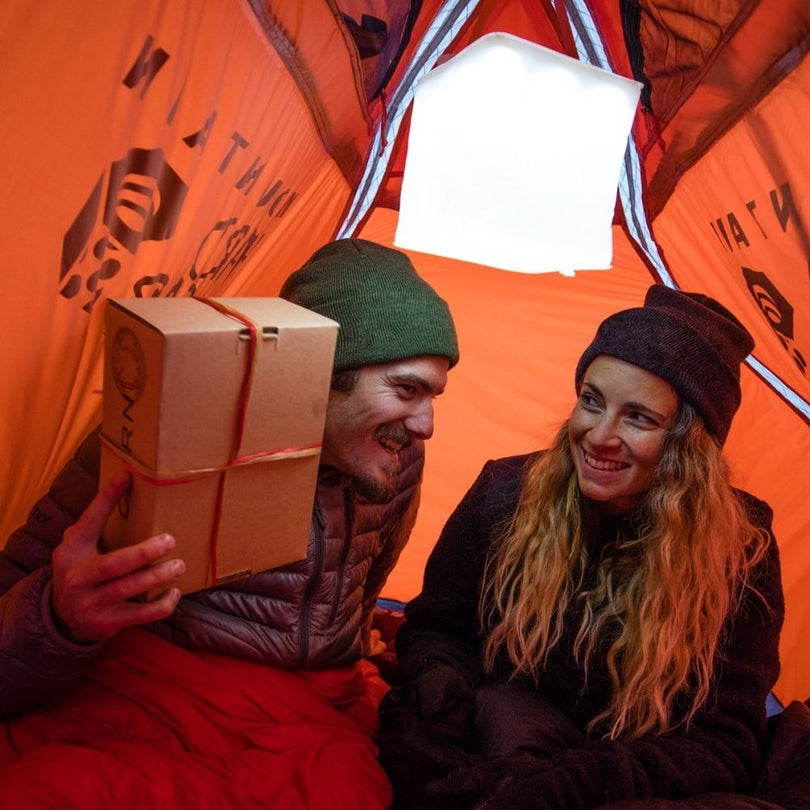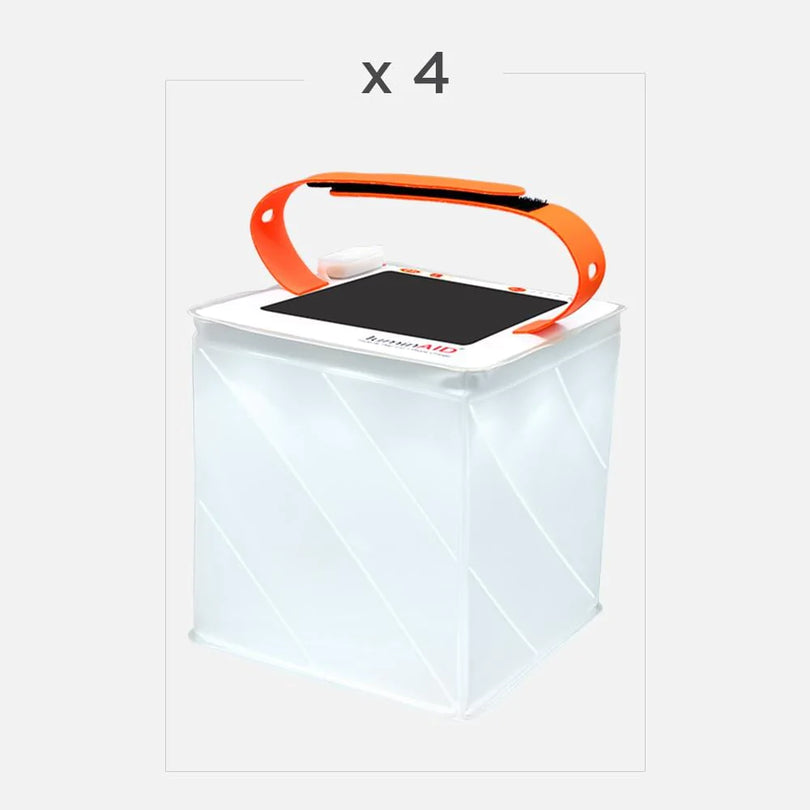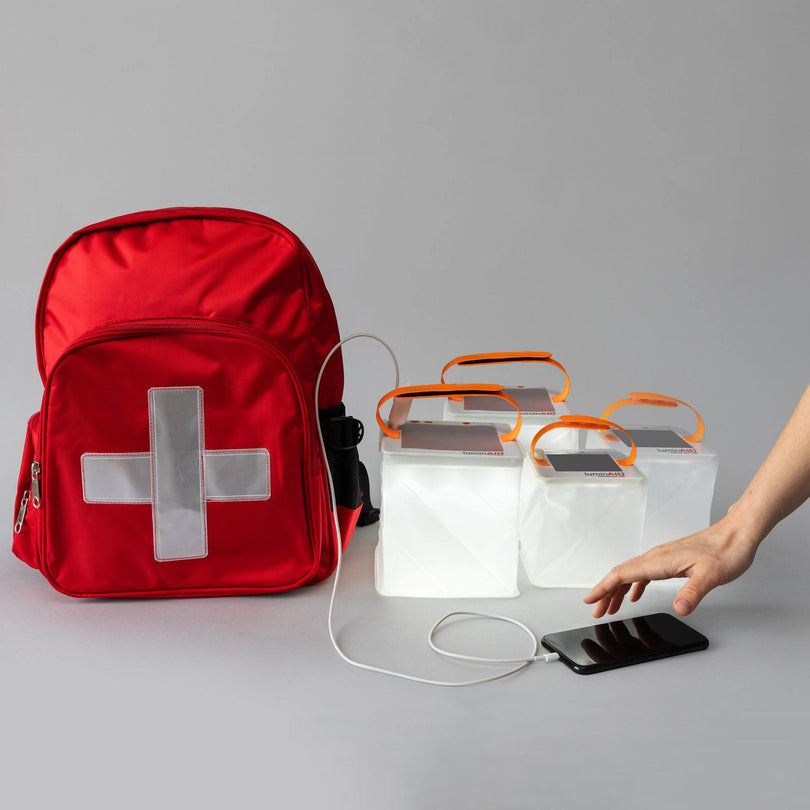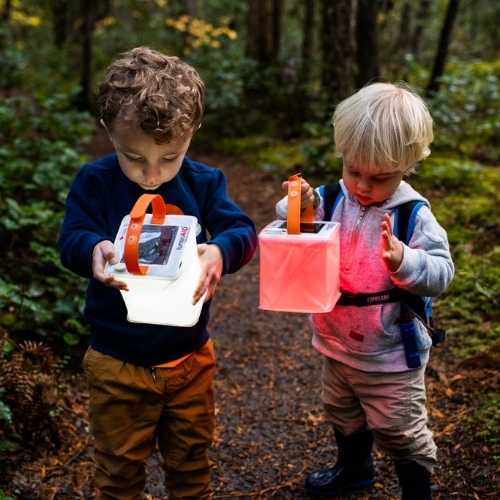Who We Work With
Through our Give Light, Get Light program, LuminAID partners with NGOs and non-profits all over the world -- including the ShelterBox, the United Nations Population Fund (UNFPA), Doctors Without Borders / Médecins Sans Frontières, and Pencils of Promise, among others. These organizations distribute LuminAID lights to individuals and communities who will greatly benefit from a safe, rechargeable light source.
With our Humanitarian Subsidy program, charitable organizations are able to gather more supplies for their cause. LuminAID works with these humanitarian groups to get higher quantities of solar aid for their relief projects. Our subsidy partners work within disaster relief, education, rural development, women's empowerment and beyond.

What and Where We Give
Since inventing solar inflatable lanterns in 2010, more than 250,000 LuminAID lights have been distributed to those in need of safe light. LuminAID and our partners have provided solar rechargeable lanterns and solar phone chargers for major relief efforts, including for the aftermath of Hurricane Maria in Puerto Rico and the Caribbean, the Syrian refugee crisis, and the 2015 Nepal earthquakes. In addition to disaster relief aid, LuminAID portable solar lamps are used in schools, orphanages, and hospitals in off-grid areas and communities with unreliable access to electricity.

How Our Lights Improve Lives
1.6 billion people around the world lack proper access to electricity. Many of these people are forced to rely upon dangerous, toxic, and expensive kerosene lanterns as their primary source of light. Through our Give Light, Get Light program LuminAID solar emergency lights are distributed to individuals who will greatly benefit from a safe, rechargeable light source. The solar lanterns displace reliance on candles, kerosene lanterns, and gas-powered generators in under-electrified communities. Simultaneously,, the rechargeable lanterns reduce fire-risk, contribute to cleaner indoor air quality, and reduce energy costs for these communities. LuminAID inflatable solar lanterns and solar charging stations are a part of the effort to offer sustainable renewable energy solutions as a necessary resources for families without reliable access to electricity.

In addition to use at home, LuminAID lanterns also provide safe light for underelectified schools, and allow children to safely read and study at home.
Portable solar lanterns are an asset for rural health services with absent or unreliable electricity. Portable LuminAID lanterns are crucial for mobile health workers, allowing midwives and nurses in particular to offer patient care that begins or extends into the night. LuminAID solar lights have been used in maternity wards to allow women to give birth more safely and comfortably at night.

LuminAID rechargeable solar lanterns help thousands of families reduce dependence on flame-based light sources, improving indoor air quality and reducing fire and fuel hazards.
LuminAID inflatable solar lights are used to illuminate safe spaces for women and children, allow women workers more flexible hours, support girls pursuing education, and improve household safety.
Solar powered charging stations and rechargeable portable lanterns support the flexibility, safety, and ease with which artisans and entrepreneurs can support themselves financially.

After disasters, LuminAID solar lanterns and phone chargers allow families to illuminate shelters, contact loved ones, and improve safety in unstable environments.
Something as simple as replacing kerosene lanterns with solar lights can have a bigger effect on family livelihoods than expected, as the money saved can be redirected to medical care, children’s education, or investment in tools for small craft and trade activities.

